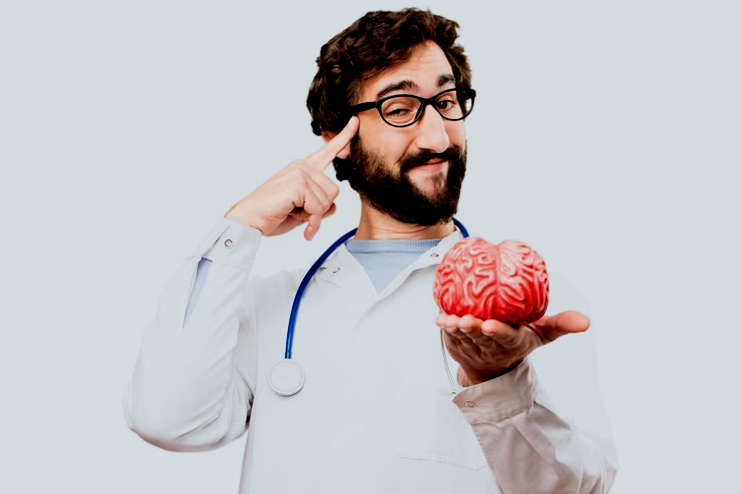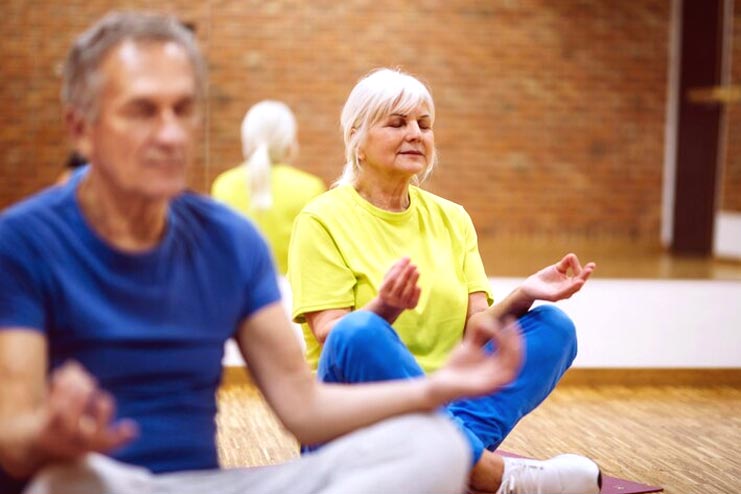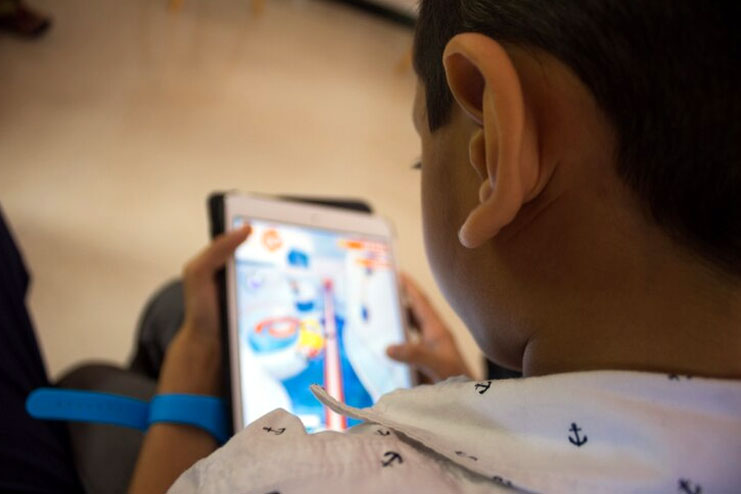Affiliate Disclaimer
Some links in this article are affiliate links. We may earn a small commission if you make a purchase through these links, at no extra cost to you. We only recommend products we find useful to our readersIn the ever-changing field of cognitive wellness, developing mental agility becomes critical for maintaining cognitive acuity at an early age. Mental agility, the capacity to learn, adapt, and think critically quickly, greatly benefits cognitive resilience. This introduction aims to clarify the meaning of mental agility and highlight its significance in aging.
We will emphasize the importance of actively engaging and exercising the mind as we delve into the complex web of aging-related issues to support cognitive wellness. Let’s explore the secrets to unlocking and preserving a resilient mind as you age.
Understanding Cognitive Health

Cognitive health is the foundation of total well-being, which includes all complex mental processes affecting memory, learning, and decision-making. Understanding the subtleties of cognitive decline, a regular aspect of aging is crucial as people age. A natural process known as “cognitive aging” causes older persons to naturally deteriorate in various areas, including memory, which can harm their quality of life.
The human lifespan has nearly doubled over the past century due to improved lifestyle choices and scientific medical advancements. Many cognitive skills we acquire peak around the age of thirty and then gradually deteriorate with age. Typical age-related losses include general mental slowness, attention problems, multitasking, and remembering information.
In the face of cognitive decline obstacles, mental stimulation is a potent ally. It has been demonstrated that engaging in mentally taxing activities and workouts effectively counteracts cognitive deterioration.
By enhancing mood and sleep quality and lowering stress and anxiety, exercise can indirectly improve memory and thinking. Cognitive impairment is often caused by or exacerbated by issues in these domains.
Play games that require mental processing. Games that test your brain power include chess, board games, video games, puzzles using words and numbers, jigsaws, sudoku, crosswords, and memory tests. People who embrace mental stimulation can improve their cognitive reserve, strengthening their brains against the effects of aging.
Types of Mental Agility Exercises

Exercises for mental agility are essential for preserving cognitive acuity since they provide a variety of tasks to pique interest and test cognitive abilities. Brain Teasers and puzzles are accessible to anyone and offer numerous advantages to cognitive health.
Solving puzzles, crosswords, sudoku, and brain teasers has several advantages for our mental well-being. It can boost our creativity, sharpen our memory, help us solve problems more effectively, and even lessen stress. Dopamine is a neurotransmitter that helps elevate mood and motivation. It is released from our brains when we solve puzzles, crosswords, sudoku, and brain teasers.
These are fun and practical ways to increase mental acuity. These engage various cognitive processes in our brains, including memory, focus, and problem-solving abilities. Moreover, the satisfaction of finishing puzzles might strengthen your general cognitive well-being by fostering a positive outlook.
A key component of cognitive health is memory; some activities can help preserve and enhance memory. Memory is crucial to daily living for us to learn about and adjust to the world around us. We use memory for various tasks in our job and personal lives, such as researching and recalling our clients’ first names.
The three phases of memory that information passes through are encoding, storing, and retrieval. You may improve your cognitive talents and get the rewards of a sharper mind by committing to memory-boosting techniques and activities. The brain is a sophisticated organ that needs a wide range of nourishment and stimulation to function at its peak. A person’s lifestyle choices can help their memory and overall health:
- Make time to sleep.
- Take a language course.
- Reduce stress.
- Engage in physical activity.
- Use modern technology.
Physical Activities and Cognitive Health

Engaging in physical activities is essential for maintaining physical health and a powerful weapon against cognitive decline. There is no doubt that regular exercise has a positive impact on cognitive function and general brain health. Getting moving can improve your ability to think, learn, solve problems, and maintain emotional equilibrium. It helps lessen anxiety or despair and enhances memory.
Engaging in regular physical activity can help lower the chance of dementia and other forms of cognitive decline. Numerous studies have revealed people who exercise have more significant volumes in the brain regions responsible for thinking and memory than non-exercisers. Even more intriguing is the discovery that a moderate-intensity exercise program followed consistently for six months or a year is linked to an increased volume of specific brain areas.
Seniors can benefit from mind-body exercises because they incorporate low-impact, low-intensity movements, deliberate breathing, and concentrated concentration. Through internal mental and physical intervention, tai chi, mindfulness, meditation, yoga, and qigong have beneficial impacts on age-related cognitive decline.
In contrast to traditional physical exercise, mind-body exercises improve breathing control, mental relaxation, mental concentration, and muscle, nerve, and joint function. These benefits can increase your compliance with mild cognitive impairments to physical and mental exercise and preserve your psychological well-being.
Because of its widespread appeal, researchers have regularly examined the positive impacts of mind-body exercise on human health. Several meta-analyses demonstrate how mind-body techniques can help their physical, cognitive, and affective functioning. It investigates the substantial effects of mind-body exercises on cognitive functioning and offers insights into how these practices support a harmonious relationship between the mind and body.
Daily Practices for Cognitive Enhancement

Developing mindful daily routines is crucial for preserving mental acuity and resilience when pursuing cognitive enhancement. Adopting an attitude of perpetual learning is a powerful tactic to maintain mental flexibility and openness to new knowledge. In the same way, exercising engages your muscles to enhance general health, which benefits the brain. To maintain its health, you must exercise it with novel tasks. Learning and gaining new experiences and knowledge might accelerate that process.
Regular reading, whether fiction or nonfiction, stimulates cognitive processes by exposing the brain to various ideas, words, and viewpoints. Learning a musical instrument or picking up new hobbies presents fresh challenges that force the brain to change and develop new abilities. Learning promotes neuroplasticity, which encourages the development of new brain pathways.
Social interaction is the foundation of mental agility, and human connections are essential to cognitive wellness. You are more likely to make good decisions and experience better mental and physical health results when you are socially connected and have secure and supportive connections. Additionally, you are more resilient to adversity, stress, anxiety, and despair.
Humans are sociable beings by nature. Social ties are essential to our survival. Our interactions with family, friends, workplace, and neighbors can significantly impact our health and well-being. Frequent social contact with friends, family, and the community stimulates the brain cognitively by making it work to interpret social cues, carry on conversations, and comprehend different points of view.
You can work on developing your emotional connection and communication skills if you want to get closer to the people in your current relationships. You can do this by scheduling more frequent discussions or learning new techniques to assist you and your loved ones talk about the essential things in life.
Technological Tools and Cognitive Fitness

Technology-based tools have become available and exciting resources for improving cognitive fitness in the age of digital innovation. By enhancing neural connections in the brain, brain training helps to increase cognitive abilities. Your brain’s capacity to process new information is enhanced as new neural pathways are formed and strengthened. You get better at particular mental tasks the more you practice them. Improved memory is one of the main advantages of brain training. These apps frequently provide numerous activities aimed at testing various facets of cognitive function, such as memory, concentration, and problem-solving.
Although technology can be a valuable tool for improving cognitive fitness, there are certain limitations and things to remember. It’s important to consider screen time concerns and any adverse effects on sleep and general well-being. Some opponents contend that the skills learned through these apps may be limited in their application in real-world situations.
According to a review, patients with cognitive impairment might benefit from using technology to engage in activities they would otherwise be unable to. However, digital technology can also hinder the development of language skills, the capacity to make decisions, and the ability to evaluate logical future stages in problem-solving, among other detrimental effects on cognitive skills.
If you’re interested in learning more about these apps, check out Elevate, CogniFit, and Lumosity.
Conclusion
Pursuing cognitive health through mental agility exercises is crucial to effectively navigating the problems associated with aging. You can strengthen their cognitive resilience using technology, brainteasers, physical exercises, and ongoing learning, as we consider how crucial it is to maintain mental sharpness.
Encouraging readers to include these activities in their routines makes them commit to a life enhanced by cognitive vigor rather than just making a proactive decision. Accept the path to mental well-being and let every workout contribute to a more agile and flexible mind.
Related Articles:
-
Dec 2023Written by Ankita
-
Nov 2024Edited by Ankita
References
- https://mbi.ufl.edu/research/research-areas/cognitive-aging/
- https://www.ncbi.nlm.nih.gov/pmc/articles/PMC4906299/
- https://memory.ucsf.edu/symptoms/healthy-aging
- https://alzheimer.ca/en/help-support/im-living-dementia/living-well-dementia/challenging-your-brain
- https://www.health.harvard.edu/mind-and-mood/exercise-can-boost-your-memory-and-thinking-skills
- https://www.progresslifeline.org.uk/news/the-benefit-of-puzzles-for-the-brain
- https://www.linkedin.com/pulse/sudoku-puzzles-brain-functions-games-benefits-brancia
- https://www.coursera.org/articles/how-to-improve-memory
- https://www.cdc.gov/nccdphp/dnpao/features/physical-activity-brain-health/index.html
- https://www.ncbi.nlm.nih.gov/pmc/articles/PMC3957486/
- https://www.cdc.gov/emotional-wellbeing/social-connectedness/affect-health.htm
- https://www.beyondblue.org.au/who-does-it-affect/older-people/connections-matter
- https://acognitiveconnection.com/why-brain-training-is-important/
- https://www.physio-pedia.com/Assistive_Technology:_Cognition_Products
In this Article
















